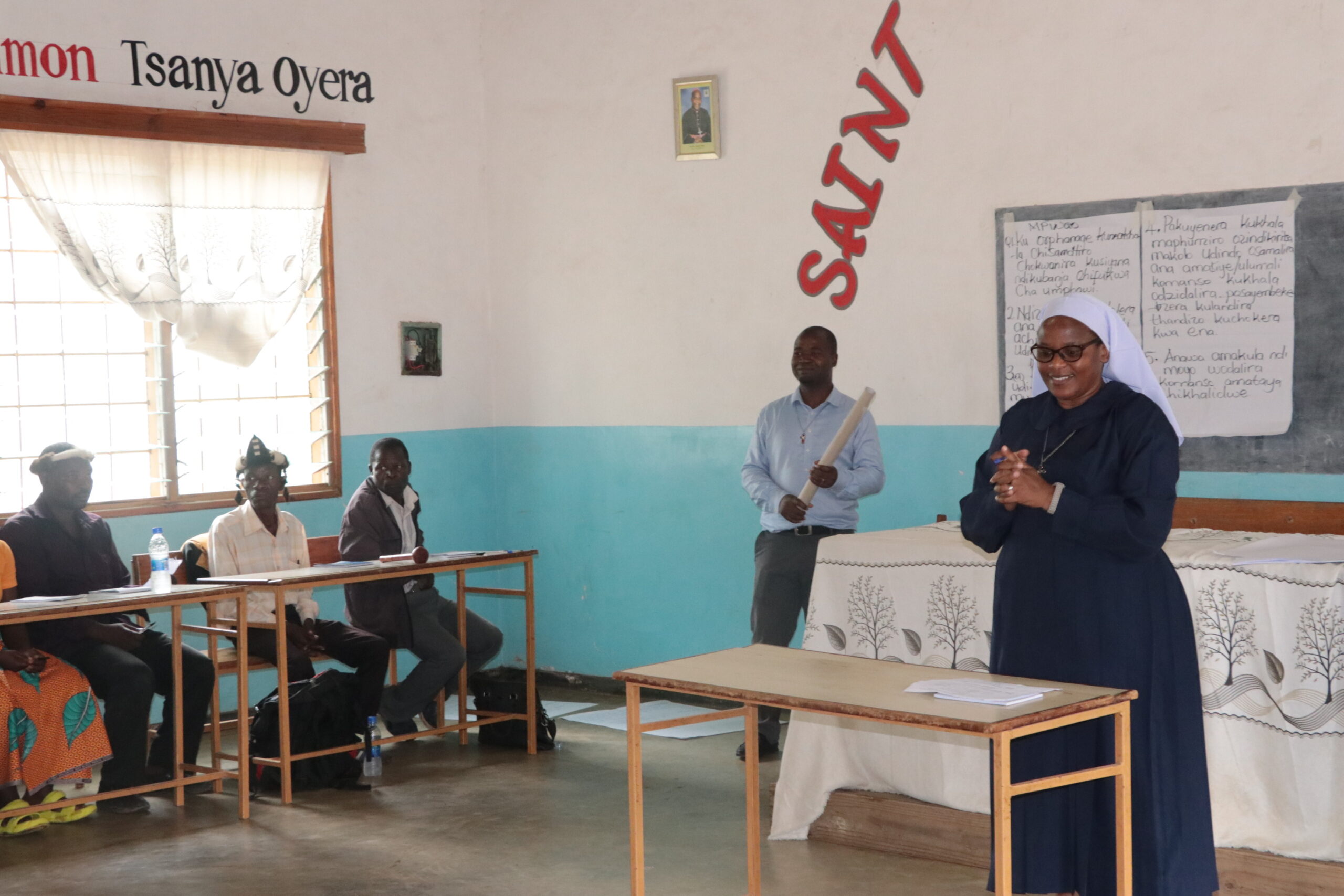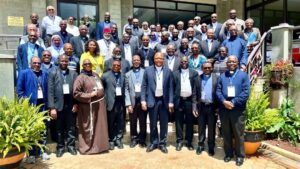AMECEA: Strengthen Family Apostolate in Church, Catholic Nun Advocates

Sr. Rabecca Mathole during one of the sessions with the stakeholders
Sr. Jecinter Antoinette Okoth, FSSA
After a week-long program as the Church in the Association of Member Episcopal Conferences in Eastern Africa (AMECEA) region seeks to encourage alternative care for children under the project dabbed Catholic Care for Children (CCC), a nun has emphasized the need to strengthen family apostolate in the region.
According to Sr. Rebecca Mathole the program manager for Catholic Care for Children in Malawi (CCC-M), reinforcing this apostolate is critical for the future of the Church and society.
“A lot needs to be done in terms of capacity building and strengthening family apostolate,” Sr. Mathole a member of the Servants of the Blessed Virgin Mary (SBVM) congregation said during an interview with AMECEA Online Saturday, March 2, emphasizing that the apostolate should focus on positive parenting and economic status of families.
The week-long program in Kankao Parish in Malawi’s Mangochi Diocese, located in the Southern region of the country, involved sensitization of the community on the significance of child care reform and field visits to assess better ways for reintegration.
According to the Malawian nun who serves at the Association of Women in Religious Institutes of Malawi (AWRIM) Secretariat in the Catholic Care for Children Malawi (CCC-M) program, the entire process was a learning moment and the stakeholders’ positive response was encouraging as it strengthened collaboration.
“It was wise to engage key stakeholders in the workshop, those from the government, the diocese, the different commissions in the Church like representatives from the family apostolate, the Pontifical Missionary Society (PMS), child safeguarding officers, community leaders, and the local chiefs and the Catholic Care Institution (CCI) members from Chimwemwe Children’s home, Kankao,” Sr. Mathole said.
Even though there was a bit of resistance at the commencement of the workshop that children should be kept in institutions, the Malawian nun narrated, “We are happy that at the end of the discussions, the participants understood the significance of holistic care of a child in a family. We now have confidence that reintegration not easy but it is possible since we are speaking the same language about childcare.”
She noted that people are hesitant to care for orphans since families have a lot of challenges ranging from poverty, family conflicts and traditional beliefs, but with good preparation “re-integration is possible.”
Sr. Mathole SBVM disclosed that after the team assessed Chimwemwe Children’s Home run by the Poverelle Sisters who volunteered from the 28 CCIs in Malawi to be the pilot institution for pilot re-integration, the CCC-M plans to convene a meeting with the sisters, and the parish priest to come up with a case plan for the child who is to be reintegrated as they keep monitoring the process together with the local chiefs and other stakeholders.
In-so-much as institutionalized children from the CCIs have always been reintegrated back into families, the institutions did not have prior ample preparation for the children and their relatives “leading to a second separation of a child,” Sr. Mathole disclosed.
She concluded saying that Malawi is set to promote reintegration in all the CCIs in the country and that through continued collaboration children will grow up holistically in a favorable environment.


